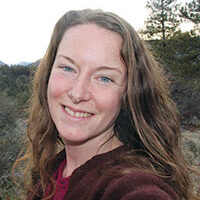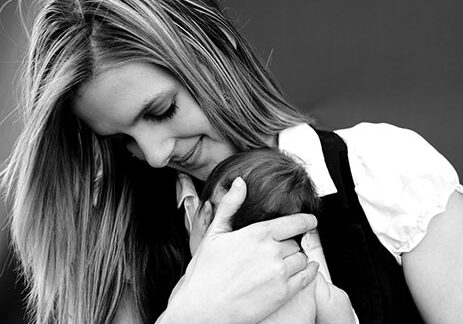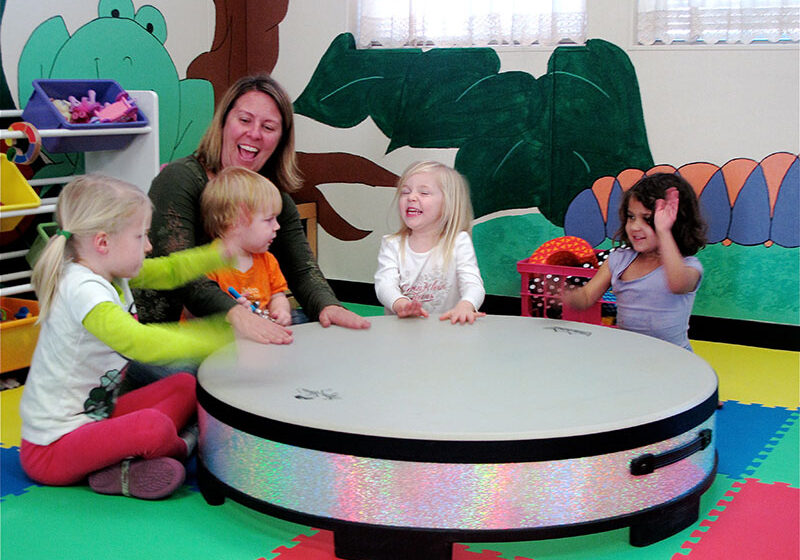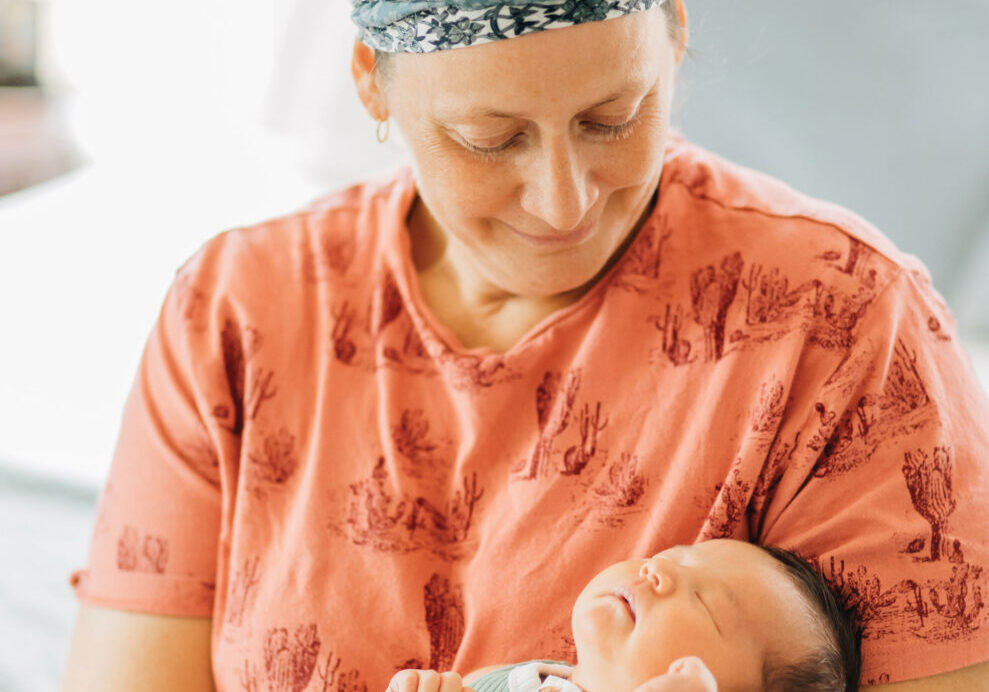Carolee June Abbott is the co-founder of Grace Doulas, primarily serving Shasta County, and also offers online birthing classes. She began offering childbirth classes in 2010.
Katarra Shaw is the owner of Luna Madre Midwifery, which serves Butte, Glenn, Sutter and Tehama Counties and has been in business for 10 years. They sat down with North State Parent to answer questions about the differences between a doula and a midwife and what makes their services unique for mothers.
Q: Why did you start your business?
Carolee — “I was a brand-new doula and my business partner, Patty, had previously taught childbirth classes and she wanted to get back into birth work since her children had grown. We combined forces to offer both (birth) doula services and education as there were not a lot of options at the time in our area. We offer various childbirth education classes as well as doula services, both birth and postpartum.”
Katarra — “I believe high quality home birth midwifery care, insemination, and location services are essential in the North State. I also offer Rolfing Structural Integration.”
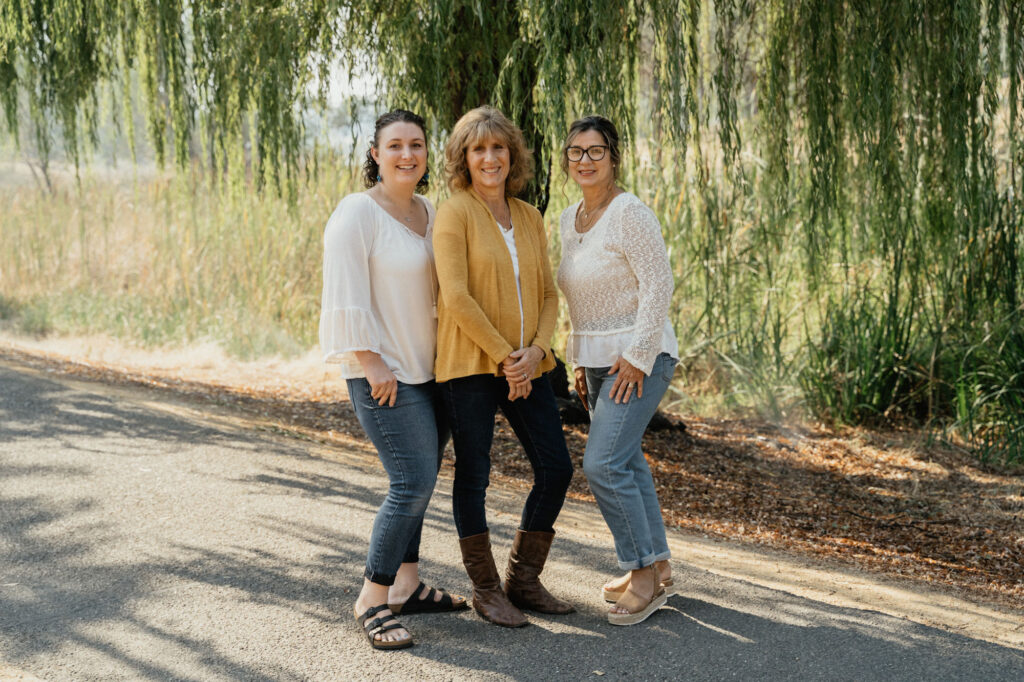
Vanessa Wright, Carolee Abbott, and Yoli Koenig of Grace Doulas are offering loving support to new moms and new moms to be.
Q: Who is your ideal client?
Carolee — “A first-time mama who is seeking to educate herself broadly in the world of birth so she can make choices that will allow for and optimize the chances for a good birth experience, as she defines it. Parents who have experienced less than ideal birth scenarios for whatever reason are also amazing because they can look back and understand maybe where things needed to be tweaked and are motivated for a more redemptive story. We feel anyone can benefit from a birth doula and a postpartum doula can especially help moms who don’t have a close network of support.”
Katarra — “My ideal clients are people who are excited about an autonomous birthing arrangement and excited to be empowered about making their own choices around childbearing year and postpartum.”
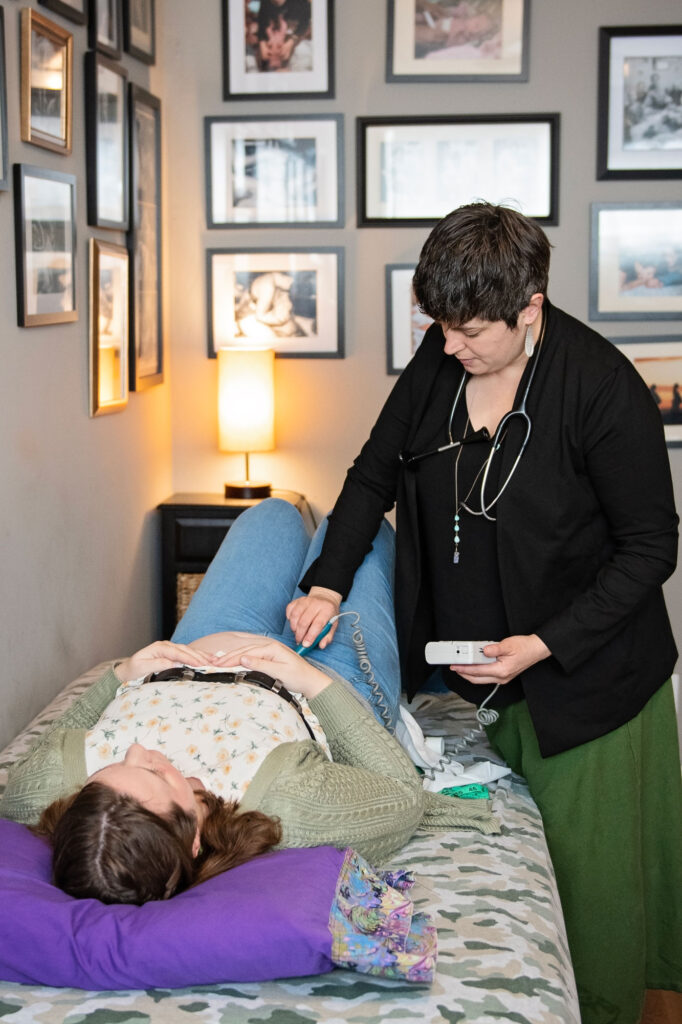
Chico area licensed Midwife Katarra Shaw, owner and chief practitioner at Luna Madre Midwifery Services, works with one of her many clients to provide a wealth of services for both mama and baby.
Q: What do people think a midwife does vs what a midwife actually does?
Katarra — “I think people think that we ride up on a horse or something and magically appear just in time for the baby to be born.” What the real work looks like, she says, is, “On my lunch break is I’m scarfing down my lunch and ordering bloodwork and troubleshooting questions and texting at 10 p.m. at night for someone who thinks they have mastitis, and trying to see if they can treat it with herbs. I am constantly researching evidence-based practices and taking care of myself so I can be of service to others.
“Doulas are essential. I want all of my clients to have a doula. I highly support them and their education. Doulas’ labor support is really so crucial. Those doulas will sit with my clients in early labor. I’m going to be sleeping, so I can make clinical settings in a few hours. They can keep someone going when they might not have someone. They are committed to being there. It is objective support, and unless a family member has extensive home birth experience, then that vulnerability of being in a setting, doulas bridge that gap and create that container for natural birth to unfold. (Ideally) I would have two doulas and one would give a massage.”
Carolee — “People often confuse midwives with doulas, she says. “Midwives are medical providers just like an OB or family practice doctor. They take the medical responsibility for the health of both mama and baby and are very ‘hands in’ as we say. Doulas are more ‘hands on.’ We provide emotional, physical and informational support to both parents (or whoever is supporting the mom). We are a combination of tour guide throughout labor and head cheerleader. Doulas join you in labor whenever you need extra help. It’s not unusual to be with a mama over 24 hours during a first birth. Midwives join the party as birth is more imminent. Their skills come into sharp focus during delivery of the baby (2nd stage of labor) and the placenta (3rd stage of labor). We support our clients wherever they choose to give birth — hospital, home or birth center.“
Q: What certifications or degrees do you have that support your ability to provide these services?
Carolee — “Doula training itself is a weekend of intense lecturing, role playing, and hands on practice. After that, there are other criteria to meet such as attending qualifying births and receiving critique from both the mom and the medical provider. There are books to read and papers to write as well to broaden your knowledge base. In order to maintain my particular certification, I do have to have continuing education classes every two years. I also keep my nursing license current, although it doesn’t play a role in my doula work, and I have to have CE units for that as well so I usually pick things baby-related.”
Katarra — I’m a licensed midwife in California and a licensed International Board-Certified Lactation Consultant. I have a massage license through California, too. Continuing education is required by all of my licenses and midwifery license.
Q: What is your philosophy about birth?
Carolee — “I love the term ‘physiologic birth’ which refers to allowing birth to unfold and progress as naturally as possible honoring the purposes of the hormones involved. However, often medical interventions are necessary and we are grateful for the ability to utilize them as needed and for what safeguards they can provide. I am committed to supporting a mom in accordance to her philosophy and viewpoints.”
Katarra — “A person’s right to their body and access to the birth that they choose should be protected. Birth is sacred.”

Shasta County’s Grace Doulas has been offering engaging and educational childbirth classes to expectant mothers and their partners since 2010.
Posted in: Birth and Toddlers
Comment Policy: All viewpoints are welcome, but comments should remain relevant. Personal attacks, profanity, and aggressive behavior are not allowed. No spam, advertising, or promoting of products/services. Please, only use your real name and limit the amount of links submitted in your comment.


